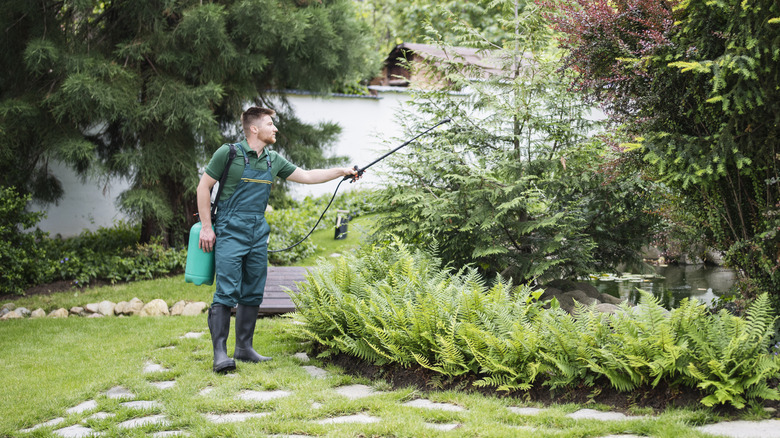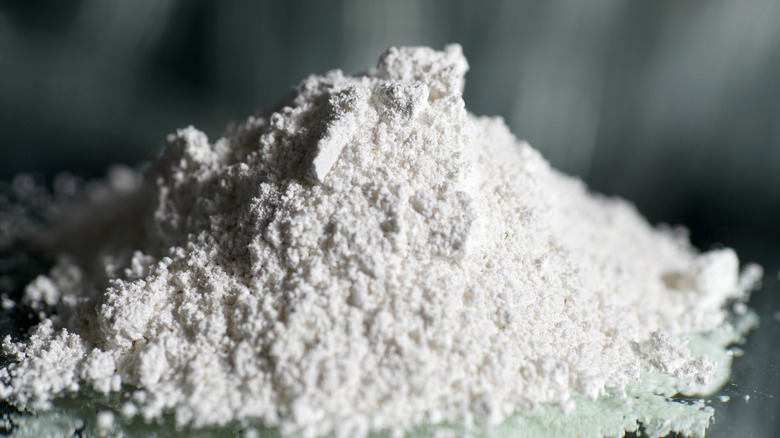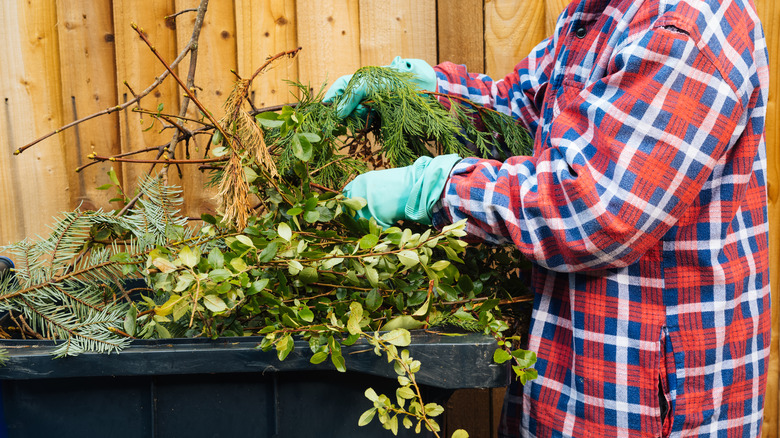Is Using Hydrated Lime To Banish Pests A Good Idea? Our Entomologist Weighs In
While hydrated lime has been purported to be capable of keeping pests off your property by online sources, this may not be a good idea after all. Emma Grace Crumbley, an entomologist with Mosquito Squad, spoke exclusively with House Digest about the uncertainty of hydrated lime as an insecticide. "There has been some discussion on hydrated lime as an insecticide in livestock settings (it has been effective in controlling mites on herd animals)," Crumbley said. "However, there are few scientific studies that support these claims."
Hydrated lime, also known as calcium hydroxide, has been used for a variety of purposes, such as making lime mortar for masonry or for clarifying water to craft commercial beverages. It may also be added to soil to enhance it for your plants or to ward off harmful and destructive fungi. Others may also tout hydrated lime as the secret to banishing pet urine odors from your lawn. Though hydrated lime has an abundance of applications, there is no definitive proof that it will be an effective pesticide and it may be more efficient to employ other methods for banishing pests.
Why using hydrated lime for pest control isn't a good idea
Emma Grace Crumbley explained exclusively to House Digest that though hydrated lime is sometimes recommended as a natural DIY pest control measure, the advice is somewhat deceiving. The name of the substance makes it sound organic, but it is really just another chemical, which is often not made clear. Additionally, the use of hydrated lime may be regulated or restricted in certain places, including some states in the U.S., making it an inaccessible choice for some.
Though it might be possible that hydrated lime might kill the insects taking over your space, Crumbley explained that it's likely better to seek out other reliable pest control solutions. "Depending on the type of hydrated lime you buy, you may have better results with pest management. However, given the wide variety of options, the lack of peer-reviewed evidence, and the danger of overapplying, drift, and runoff, I highly recommend trying more effective and proven pest control methods before relying on hydrated lime," she said.
Good ideas for banishing pests
Rather than wasting your time trying potentially ineffective pest control methods like hydrated lime, Emma Grace Crumbley told House Digest exclusively that making your environment less pleasant for pests is an effective and simple way to get rid of them. "Pest control is most effective when multiple control methods are combined. To reduce the presence of pests in your yard, you need to reduce their access to food, water, and shelter," Crumbley said.
This could mean making sure your grass is short and your property doesn't have overgrown areas where insects can hide, or finding ways to prevent flooding that results in standing water. Crumbley also suggests replacing any wood mulch with a rubber version or gravel versions, as well as keeping stacks of wood far from your house, as these areas can provide shelter to all sorts of insects. Additionally, Crumbley promotes having a biodiverse lawn that can attract the good bugs that'll chase pests from your garden. "Planting wildflowers, avoiding harsh chemicals, and keeping a healthy lawn help beneficial insects like ladybugs, lacewings, and praying mantises protect your lawn from unwanted insects," she said. For severe infestations, it may be best to contact a pest control professional.


